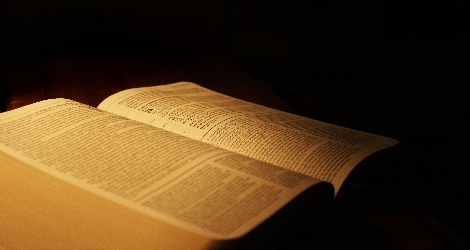[wpcol_1half id=”” class=”” style=””]
Political Failure
Those who no longer share our sense of community and the American Dream are using their power to undermine all of what our national community once held dear: public education, welfare, health insurance, Social Security, unemployment insurance, Medicare, our infrastructure of transportation and communication; and, of course, the protection of our environment. Their task is made easier by our government’s failure in macroeconomic policy and regulation. Irresponsible risks were taken by those we trusted to run our major banks and investment houses. When the boom in our real estate markets came to an end, the stage was set for a worldwide depression. There was no legitimate excuse for this policy failure. Those responsible in the Federal Reserve and the Treasury have apologized to the public. Some of those responsible have somewhat redeemed themselves by admitting their failure and joining the bailout efforts and other attempts to salvage our economy. Still, it is ironic that the huge deficits are now being used by those politicians responsible for the macroeconomic policy failure. Those who caused the recession are now using it to undercut our social programs and to block any further stimulus.
Would it be possible for us to use macroeconomic policies to overcome these difficulties? Certainly! Most economists would point out that more aggressive stimulus programs should have been employed. A successful stimulus would have already created jobs and reduced deficits. A quick recovery would have led to increased government revenues at every level, as it did in the late 1990s when huge deficits turned into huge surpluses overnight. What is missing now is a failure of will. Our sense of community is broken, and our government has become dysfunctional. The heroic responses of other generations seem well beyond our reach. Now our society, and more especially our government, has lost its ability to respond to our macroeconomic failures; and, in fact, many of those in power seem only intent on undercutting our basic social programs.
What Can Christians Do?
How can we restore the American Social Covenant, our sense of community, and the American Dream?
For Christians the term “covenant” is deep with meaning. We have received the gift of God’s covenant. God has showered us with undeserved Grace and Love.
The main theme of the Bible is the unfolding of God’s revelation and our understanding of how God is reconciling the world through love. God’s plan unfolds in the stories of creation, the promises to Noah and to Abraham, and the exodus experience. The new covenant given through Jesus completes our understanding of the inclusive nature of God’s love.
As Christians, our covenants with our neighbors as individuals and in community are made in grateful response to God’s covenant of grace to us. To the extent possible our covenants with others should reflect love and mutual respect.
As Christians, there is much we can do to help our fellow citizens renew their faith in our community. We Christians are called to be Children of Light and Inclusiveness. At their best all of our fellow Americans are Children of Light.
So we must go about healing our national community. We must reach out to all our fellow citizens. We must strive to lift the national discourse out of the depths to which it has been debased by the politicians and their strategists. Needless to say, this includes both Democrats and Republicans, all of those who share a sense of community and the American Dream.
[/wpcol_1half] [wpcol_1half_end id=”” class=”” style=””]
We must take on the mantle of the Children of Light in its modern equivalent, becoming children of community, inclusiveness, optimism, and mutual respect. We must seek to renew and refine the American Dream to include those particularly Christian moral values of fair starts and safety nets. We must give special support for the disadvantaged. We must provide for second starts as well as first starts. Of course, Niebuhr would warn us to be a little less naïve and a little more wise than the classic Children of Light. We must reach out and that means making ourselves vulnerable. But we must at the same time counter the most outrageous lies and dirty tricks of the political strategists.
We must form a truth brigade to expose and embarrass those who make a game of lying and twisting the truth. The campaigns of attack ads must be countered. To the Christian Community in Ephesus Paul wrote: “For once you were darkness, but now in the Lord you are light. Live as Children of Light—for the fruit of the light is found in all that is good and right and true. Try to find out what is pleasing to the Lord. Take no part in the unfruitful works of darkness, but instead expose them” (Ephesians 5:8-11, NRSV, emphasis mine).
We have some advantages over the big-lie approach. For example, consider the current claim that cutting social programs (unemployment benefits, Social Security, Medicare, national health insurance, and public education) is actually a way of creating more jobs. Such a claim is an embarrassment to our common sense. Even the most conservative estimates by reliable, bipartisan agencies, such as the Congressional Budget Office, vigorously refute that lie. But that does not stop the Children of Darkness from repeating it over and over.
Vigorous “watch dogging” may help clean up the public discourse. But a much more positive effort is also required if we are to restore the American Dream.
One way to lift our spirits is simply to tell the stories of how our nation has responded to adversity in the past. We must remind ourselves of the greatness of our past; there has been not just one “great generation” but many. Yes, we now face a great worldwide recession with our middle class decimated. But to quote FDR: “We have nothing to fear but fear itself.”
We have the means to restore our politics and our economy! And it all starts with a renewed sense of community.
The generation that faced the Great Depression, World War II, and the devastation of Europe faced much greater challenges than we face today. But they responded with a sense of community, built a new economy, and won World War II. In the post-war years, they responded to a recession and huge deficits by (1) creating the GI bill to reward our veterans and give them fair starts, and (2) by creating the Marshall Plan to help rebuild Europe. Part of Marshall’s genius was that he was able to overcome the usual political polarization in Congress by lifting our collective sights higher than ever before.
The generations of the 1960s were equally brave and optimistic. Furious civil rights struggles were waged and won. The assassinations of John Kennedy, Martin Luther King, and Bobby Kennedy (as well as many other civil rights advocates) certainly damaged our sense of community; but Lyndon Johnson and Congress forged ahead with civil rights legislation and the Great Society programs of Medicare, Medicaid, Head Start, and the Peace Corps. More recently, we are reminded by how we Americans respond to tragedies around the world.
These are the stories we must share with each other. We really are better than the political strategists would have us believe. The political strategists are false prophets. We must counter them at every turn and renew our trust in the strengths of our fellow citizens and our community and our God.
[/wpcol_1half_end]
John Winfrey is an economist. He and his wife Barbara live in Lexington, Virginia, and are members of the Lexington Presbyterian Church. For many years he taught economics and public policy at Washington and Lee University. His publications include Social Issues, the Ethics and Economics of Taxes and Public Programs (Oxford University Press) and Public Finance, Public Choices and the Public Economy (Harper and Row). He writes in the areas of Christianity, politics, and economics; especially focusing on our nation’s social programs.
Notes
[1] Reinhold Niebuhr, The Children of Light and the Children of Darkness (New York: Scribner, 1944, 1960).
[2] Ibid, 9.
[3] Ibid, 18.





Unbound Social